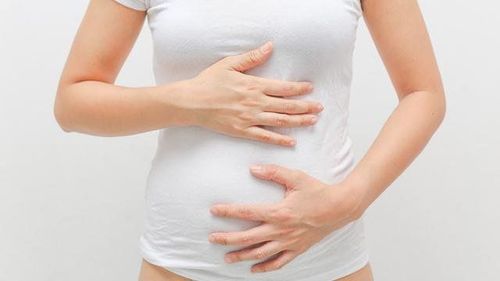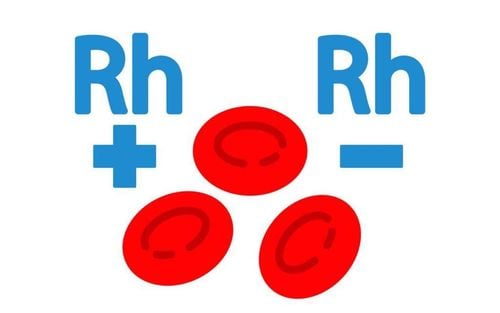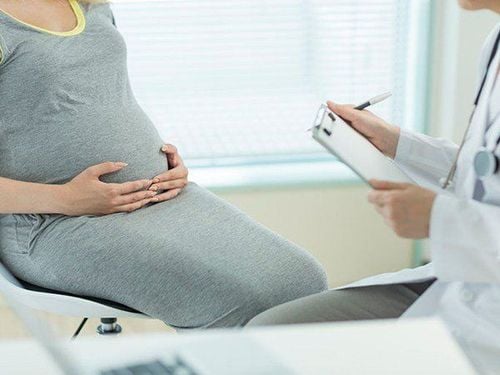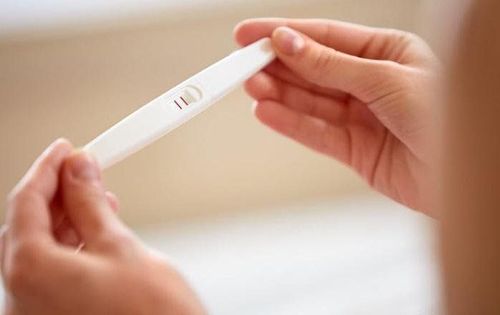This is an automatically translated article.
The article was consulted with Dr. Nguyen Anh Tu - Doctor of Obstetric Ultrasound - Prenatal Diagnosis - Department of Obstetrics - Vinmec Hai Phong International General Hospital.A miscarriage is the loss of a pregnancy before 23 weeks of pregnancy. According to the American Maternity Association, miscarriage accounts for 10 to 15 percent of all pregnancies, and 80 percent of miscarriages occur before 12 weeks of gestation.
1. Causes of miscarriage
Placental problems: Miscarriages during the first 3 months of pregnancy are often attributed to problems with the developing fetus. The placenta is the organ that connects the baby's body with the mother's body, transporting nutrients from the mother's body to the fetus for the fetus to develop. Therefore, if there is a problem with the placenta, it can affect the growth and development of the baby, and even cause a miscarriage.Chromosome problems: The biggest cause of first-trimester miscarriages is chromosome-related. The reason is that the zygote formed during fertilization between the sperm and the egg has a problem with the number of chromosomes, which may be either a lack or an excess of chromosomes.
Hormonal imbalance: Hormones have an extremely important role in pregnancy. For example, the hormone progesterone has an important role in supporting the placenta to attach to the uterine wall, if the mother's body does not have enough progesterone, the placenta will easily detach and lead to miscarriage.
Immune disorders: When the immune system is over or underactive, there can be a risk of recurrence. Simply put, the mother's body doesn't accept the pregnancy.
Mother's health condition: Having a medical condition during pregnancy, such as diabetes, high blood pressure during pregnancy, lupus, kidney disease and problems with the thyroid gland,... can increase your health. risk of miscarriage.

Food Poisoning: Food poisoning can also lead to miscarriage.
Uterine structure: Uterine abnormalities such as septum uterus, unicornuate uterus, bicornuate uterus,... can cause miscarriage.
Cervical fissure: Cervical fissure can lead to miscarriage. If the mother's cervix is too weak, it will be difficult to hold the fetus.
2. Signs of miscarriage
Signs of miscarriage can be different for each person, some pregnant women experience all of the signs but others only have slight changes in their body:Loss of pregnancy symptoms: For mothers who are experiencing morning sickness but suddenly lost signs such as breasts are no longer tight, no nausea...
Abnormal bleeding: If the vaginal bleeding is bright red and then stops, repeats, the color of the blood also changes from Bright red to ripe plum brown, is a signal that hormone levels are dropping and a possible miscarriage.
Lower abdominal pain, back pain: This symptom is similar to when you have menstrual pain. But it is also the most common sign of miscarriage and ectopic pregnancy. Therefore, if you notice uterine contractions (about every 5-20 minutes) that make you feel tight and difficult to breathe, followed by vaginal bleeding, you need to see your doctor right away.
Cramps with bleeding: If the cramps are accompanied by vaginal bleeding and difficulty breathing, you are most likely to have a miscarriage.
Pelvic pressure: If the pelvic pressure due to the fetus is heavy and is accompanied by vaginal bleeding, cramps, it is a very clear sign that you are about to miscarry.
Vaginal mucus: Unusual vaginal discharge with blood clots and pink liquid, can be a sign that you are about to miscarry. Especially when this slime has a strong odor, it is very worrisome.
Negative pregnancy test: A positive then negative pregnancy test is a typical sign of an ectopic pregnancy, and is often accompanied by spotting.
3. Prevention of miscarriage in the first 3 months

Go for a pre-marital examination to determine the health of both people before becoming pregnant. For those who are pregnant, it is necessary to limit heavy labor. Good working environment, pregnant women should avoid cigarette smoke, hot spicy food during pregnancy or stimulants such as alcohol, coffee. When there are signs of a missed period, you should go to the doctor as soon as possible to check whether the pregnancy is in the uterus or not. There are many cases of threatening miscarriage but actually having an ectopic pregnancy, very dangerous. Pregnancy screening tests prescribed by a specialist. If the mother has a history of threatened miscarriage or miscarriage, she must abstain from marital relations. During the first 3 months of pregnancy, you should limit going to places with epidemics and get vaccinated before pregnancy to help prevent diseases...
4. When can I start getting pregnant again?
If the miscarriage is not resolved, bleeding is still visible or the ultrasound shows an empty gestational sac, the doctor will perform an abortion. Some people still see bleeding a few days after having an abortion, because HcG is still circulating in the body, so the woman will not ovulate or get her period again. In most cases, it takes about 10 days for HcG levels to stabilize and hormone levels to return to pre-pregnancy levels. Many women get their period again within 4-6 weeks of a miscarriage, which is a sign that ovulation and fertility have returned to normal.However, doctors also advise couples trying to conceive, after a miscarriage to wait for the bleeding to stop, the hormone levels to be stable, and to feel physically and psychologically healthy enough, the chances are good. The next pregnancy will be better. Usually after 3 months couples can conceive again.
Once there is a history of miscarriage, extreme caution should be exercised in the next pregnancy to avoid risks. You should be screened before becoming pregnant and fully vaccinated. This helps to know your health status, promptly treat and prevent the risk of diseases if any, supplement the necessary nutrients, create the best conditions for the fetus to develop right from the time of birth. pregnancy, which helps identify genetic risk factors. Especially in cases where the parents are suffering from obstetric and gynecological diseases, chronic diseases, have been pregnant or gave birth to a child with birth defects.
Vinmec International General Hospital is implementing a pre-pregnancy health care and counseling program to help mothers prepare for the best health before pregnancy. With this program, you will receive:
General health examination, especially gynecological examination, to help assess the possibility of conception as well as the health of mother and baby during pregnancy. Vaccination before pregnancy, helps prevent many dangerous diseases, especially Rubella. Genetic counseling helps identify risk factors, helps clients and families make decisions, and prevents occurrence or re-emergence in the family. Screening detects healthy people carrying disease genes, especially hemolytic anemia. In particular, after performing genetic screening, specialists at Vinmec will directly analyze the results and provide genetic counseling for the best development of the fetus.
If you have a need for medical examination and advice before pregnancy, please book an appointment directly at the website for service.

Please dial HOTLINE for more information or register for an appointment HERE. Download MyVinmec app to make appointments faster and to manage your bookings easily.














